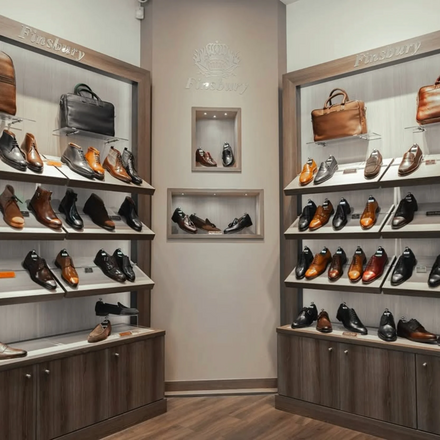Eco-franchises on the rise

Recycling-focused franchises are gaining traction across Europe, combining environmental impact with innovative business models. Discover how to join this growing trend.
Eco-friendly franchises have been making waves in Europe, with businesses like recycling vending machines or rewards-for-recycling systems catching public interest. One standout example is the concept where customers receive small gifts, discounts, or vouchers in exchange for depositing used plastic bottles or cans into automated machines. These initiatives aim to reduce waste while fostering a culture of sustainability.
Franchise models in this sector are becoming increasingly attractive to entrepreneurs who value both profit and environmental impact. Such businesses align with growing global priorities on sustainability and consumer demand for greener solutions.
How the system works?
These franchises operate through automated recycling machines placed in high-traffic locations like shopping malls, schools, or city centers. Customers insert recyclable items like plastic bottles or aluminum cans, and the machine rewards them with vouchers redeemable at local businesses or online stores.
Franchisees typically oversee the management and maintenance of these machines, while franchisors provide the technology, software, and ongoing support. The appeal of these systems lies in their simplicity and the dual impact of generating income while promoting sustainability.
Investment requirements
The initial investment for an eco-recycling franchise varies depending on the brand and scope of operations. Entrepreneurs can expect to invest between €50,000 and €150,000, which typically covers the cost of machines, training, and installation. Higher-end franchises might require a larger capital outlay if they include advanced technologies like AI sorting systems or mobile app integration.
The payback period generally ranges from two to four years, depending on the location and volume of recyclables processed. Popular brands report an average monthly income of €2,500 to €6,000 per machine, with potential for higher returns in busy urban areas.
Becoming a franchisee
To join an eco-recycling franchise, prospective franchisees usually need to demonstrate a commitment to sustainability and possess basic business acumen. The process typically involves an application, an interview with the franchisor, and a review of the proposed location for machine placement. Some franchisors also require a deposit or upfront fee to secure the franchise agreement.
Once onboard, franchisees receive comprehensive training on machine operation, software use, and customer engagement. Franchisors also assist with site selection, marketing strategies, and logistical support, ensuring a smooth setup process.
Leading brands in the market
Several brands have established themselves in the eco-recycling franchise space across Europe. For example, Germany’s ReCircle has a strong presence in urban centers, offering franchises starting at €60,000. Similarly, EcoVend, based in the UK, focuses on compact vending solutions and offers an entry-level investment package at €50,000. Both brands provide end-to-end support, from installing machines to analyzing customer data for optimized performance.
In the Nordic countries, GreenReturn has introduced machines with advanced AI for efficient sorting, requiring a higher investment of €120,000 but promising greater efficiency and revenue potential.
Benefits for franchisees
Franchisors provide substantial support to franchisees, including equipment maintenance, software updates, and marketing assistance. Most eco-recycling brands also offer real-time analytics tools, enabling franchisees to monitor machine performance and optimize operations.
Additionally, franchisors often collaborate with local businesses to secure partnerships for reward programs, increasing customer engagement. These partnerships not only drive foot traffic to machines but also enhance the visibility of both the franchise and the partnered businesses.
Why choose eco-franchising?
Eco-recycling franchises appeal to a growing demographic of environmentally conscious consumers. With governments and organizations emphasizing sustainability, these businesses align with broader trends and benefit from supportive policies. Franchisees can expect long-term growth prospects while contributing to a cleaner environment.
Featured franchises
No featured franchises
Other concepts from sector consumer services
Breaking news
Show all
Next Engineers - a global STEAM Education
Innovative STEAM education franchise empowering children through hands-on engineering learning, combining structured curricula with scalable...

LA BARBE DE PAPA
Step into a premium grooming network built for growth, offering a structured franchise model with clear financials and strong operational support.

Pandora Greenbox franchise
Pandora Greenbox offers a scalable fast-casual concept combining healthy cuisine, smart design and strong unit economics across Europe.

Expanding premium footwear through franchising
A French footwear brand expanding through franchising, offering structured entry into premium shoe retail with established operational standards.



